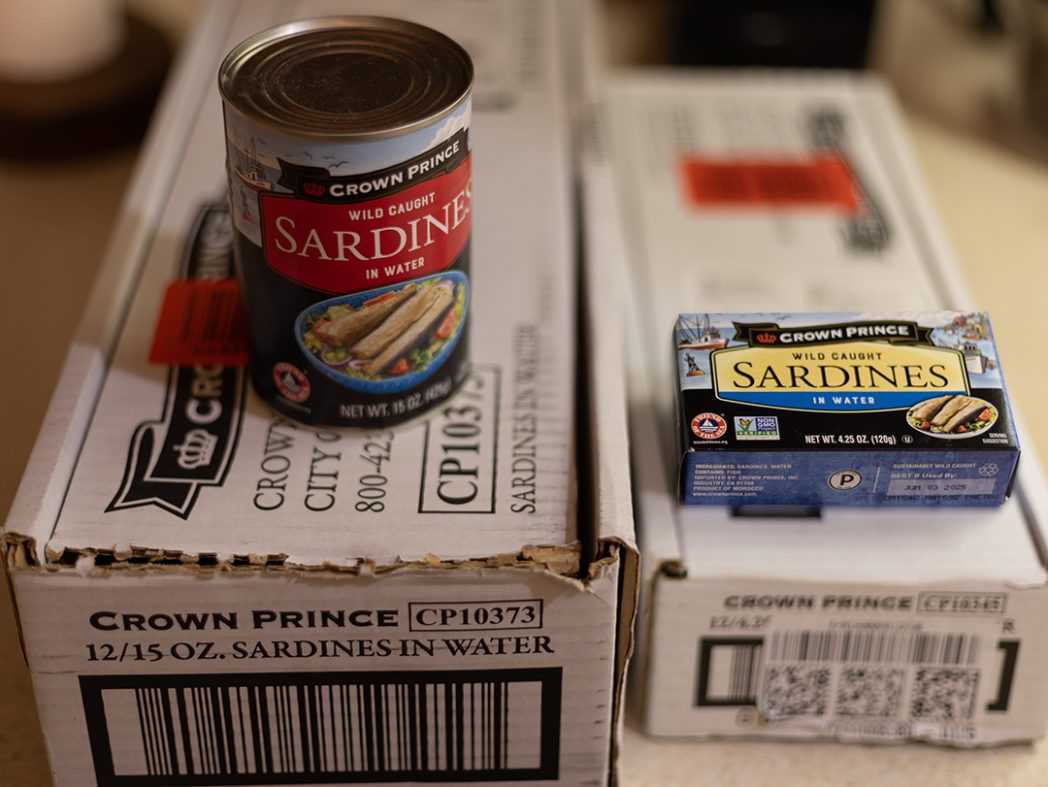The Fantastic Benefits of Feeding Your Dog Sardines
My mission is to help you have a healthier dog and breeders to raise healthier Llewellin Setters puppies through educational content based on over twenty years raising, training, and breeding Llewellin Setters. To help support these efforts, this page may contain affiliate links. I may earn a small commission for qualifying purchases at no cost to you.
As a pet owner, you always want what’s best for them. That’s why when it comes to their diet, you should always strive to provide them with the best possible nutrition, just as you would your child. One of the best ways to do this is by including sardines in their diet, particularly those from clean, unpolluted waters.

Sardines are small, oily fish that are packed with a wide range of essential nutrients that are beneficial to both humans and animals. They are an excellent source of omega-3 fatty acids, which are vital for your dog’s overall health and wellbeing. These fatty acids play an important role in reducing inflammation, improving brain function, and promoting healthy skin and coat.
But what makes sardines so special compared to other types of fish? Well, for one, they are small and low in mercury, which is a common contaminant in many types of seafood. This means that they are safe for your dog to consume regularly without having to worry about the potential negative effects of mercury toxicity.
Sardines are also an excellent source of protein, which is essential for building and maintaining strong muscles. This is particularly important for older dogs who may have muscle loss or who are less active than their younger counterparts. Additionally, sardines are a great source of vitamins B12 and D, amino acids (the stuff that makes up protein), taurine, the deficiency of which from any cause can lead to dilated cardiomyopathy, a heart muscle disease, and coenzyme Q10, all of which play a vital role in maintaining good health.
When choosing sardines for your dog, it’s important to opt for those that are packed in water or healthy oils such as coconut or olive oil. But remember oil-packed sardines introduce the potential for rancidity so if choosing sardines packed in oil, keep them in a cool, dark place and use them quickly.
It’s also important to choose sardines from clean waters like Morocco and Spain. Sardines that are caught in polluted waters can contain harmful toxins and contaminants such as arsenic that can be harmful to your dog’s health. By choosing sardines from clean waters, you can be sure that you are providing your dog with the highest quality and safest nutrition possible.

Feeding your dog sardines is easy and convenient. Simply add a few raw sardines to your dog’s regular meals a few times a week. You can also feed them as a treat or mix them in with other ingredients to create a tasty and nutritious meal. My pup receives a few for breakfast several times a week and she absolutely loves them.
Additionally, sardines are a great option for dogs that suffer from skin allergies or other skin conditions. The high levels of omega-3 fatty acids found in sardines can help reduce inflammation and itchiness, while also promoting healthy skin and coat. This is especially important for breeds that are prone to skin issues, our working dogs, and dogs that are fed kibble.
Another benefit of feeding your dog sardines is that they are a natural source of glucosamine and chondroitin. These two substances are essential for maintaining healthy joints and can help prevent arthritis or other joint-related issues in older dogs. This makes sardines an excellent option for senior dogs that may be experiencing joint stiffness or pain. And sardines are a fantastic addition to your bird dog’s diet. They work hard and the Omega-3’s, protein, DHA, glucosamine and chondroitin will aid them in the field. You will be amazed at the difference feeding sardines a few times a week will make in any age of dog, but especially puppies that are growing, working dogs, and senior dogs.
Feeding your dog sardines is also a cost-effective way to provide them with high-quality nutrition. Sardines are relatively affordable and can be found at most grocery stores or online. This makes them an excellent option for pet owners who want to give their dogs the best possible nutrition.
Lastly, feeding your dog sardines is a great way to support sustainable fishing practices. Sardines are a small fish that reproduce quickly and in large quantities, making them a sustainable and eco-friendly choice. By choosing sardines from clean waters, you are supporting responsible fishing practices and helping to preserve our oceans and marine life.
In conclusion, feeding your dog sardines from clean waters like Morocco and Spain is a fantastic way to provide them with essential nutrients, promote healthy skin and coat, and support joint health. Sardines are a cost-effective and sustainable option that can be easily incorporated into your dog’s regular diet.
So, the next time you’re looking for a nutritious and tasty treat for your dog, consider reaching for a can of sardines. Not only will your dog love the taste, but you’ll love the numerous benefits they provide. By choosing high-quality sardines from clean waters, you can be sure that you are providing your dog with the best possible nutrition and promoting their overall health and wellbeing.
Which Sardines to Feed Your Dog?

There are several brands, these are my favorite and I have a recurring subscription to receive a case once a month. The small, 4.25 oz cans are fantastic for a one or two dog family and for traveling. The large, 15 oz cans of Crown Prince Wild Caught sardines are great for larger packs of dogs (or for you and a few dogs) or use a few and refrigerate in another container.

You must be logged in to post a comment.